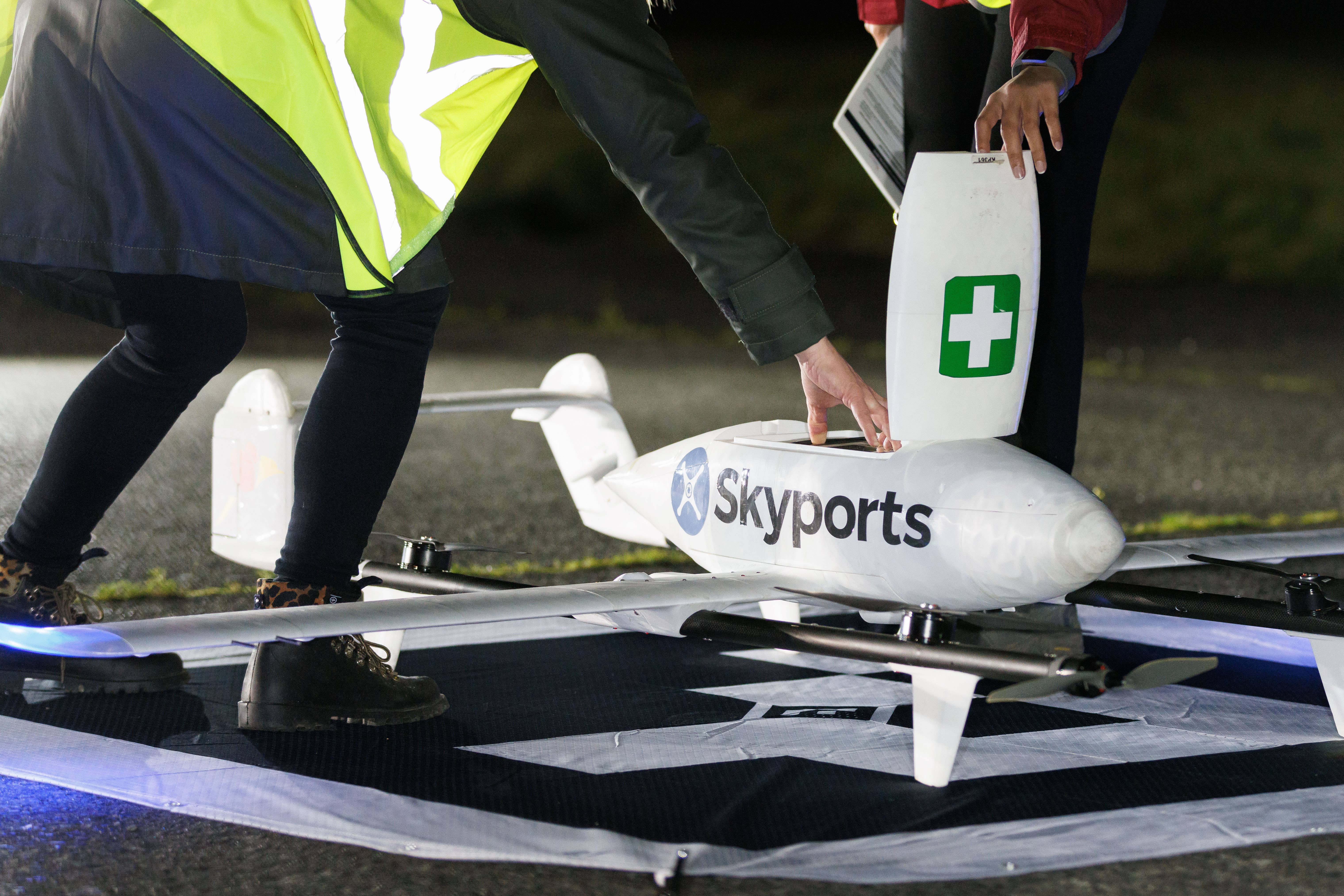Drones to deliver defibrillators to treat cardiac arrest patients in trial
The Scottish Ambulance Service is a partner in Project CAELUS, which aims to create a drone-enabled medical logistics network.

Your support helps us to tell the story
From reproductive rights to climate change to Big Tech, The Independent is on the ground when the story is developing. Whether it's investigating the financials of Elon Musk's pro-Trump PAC or producing our latest documentary, 'The A Word', which shines a light on the American women fighting for reproductive rights, we know how important it is to parse out the facts from the messaging.
At such a critical moment in US history, we need reporters on the ground. Your donation allows us to keep sending journalists to speak to both sides of the story.
The Independent is trusted by Americans across the entire political spectrum. And unlike many other quality news outlets, we choose not to lock Americans out of our reporting and analysis with paywalls. We believe quality journalism should be available to everyone, paid for by those who can afford it.
Your support makes all the difference.Drones could be used to ensure cardiac arrest patients in Scotland receive quick treatment if a trial is successful.
More than 8,000 people per year in Scotland have an out of hospital cardiac arrest, and defibrillators delivered by drone could help passers-by in rural, remote or congested areas provide life-saving care.
Scottish Ambulance Service (SAS) is a partner in Project CAELUS, a group of organisations aiming to develop the UK’s first drone-enabled medical logistics network, funded by Innovate UK.
A simulation study will be carried out in Edinburgh on July 22 to better understand the feasibility of delivering automated external defibrillators (AEDs) by drone.
The study will investigate bystander interaction and protocols to support ambulance call-handlers in navigating the public to a drone during simulated scenarios.
Data from the study will later be analysed by Strathclyde University.
A number of live flight trials are planned across Scotland later this year as part of CAELUS, led by AGS Airports and NHS Grampian.
During each scenario, a group of participants will be given instructions during a phone call, while another group will be given video-assisted guidance to retrieve a nearby AED delivered by drone.
SAS chief executive Michael Dickson said: “The entire health service, including here at SAS, is always looking at ways to innovate and find new ways of providing life-saving care.
“Drone delivery of AEDs to out of hospital cardiac arrests is being investigated in several parts of the world, especially looking at how this could be used at remote and rural areas or areas of extreme urban congestion.
“This study will provide us with additional evidence to assess if drones could provide value to the Scottish Ambulance Service in the future.
“This innovative scheme has the potential to benefit communities across Scotland, including those in remote and rural areas.
“We look forward to working with our partners at AGS and the CAELUS project on developing it further.”
Fiona Smith, Project CAELUS director, said: “We have been delighted to work with SAS on this study.
“Project CAELUS is looking forward to continuing the great work with a several key partners to showcase the potential to benefit communities across Scotland and provide equity of care to remote and rural areas.”
Karen Bell, national innovation programme lead for CAELUS at NHS Grampian, said: “This is exciting work being delivered by SAS to explore how technology could change the response to an emergency call to an out of hospital cardiac arrest in the future.
“Working in the NHS Innovation Space, NHS Grampian as the lead NHS board in the CAELUS consortia have welcomed the opportunity to work with SAS on this novel approach to delivering care.”